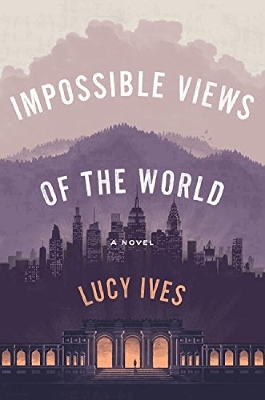Reviewed by Quirky Cat on
The writing style for Impossible Views of the World was a breath of fresh air; it is just so very different from everything else I’ve been reading lately. It actually makes me feel bad saying I didn’t love the book, because while I didn’t love the plot, I really did love the writing itself, as well as the cover.
Stella Krakus is a curator at Manhattan’s Central Museum of Art; she’s moderately successful at her job, having published one paper, and started on art history blog (which she abandoned later). She’s become disinterested in her work lately, but does a decent job of keeping it hidden. Her mother is a rich and relatively famous print dealer, and her father a lawyer. Her husband? Soon to be ex and a jerk and a half. That pretty much sums up Stella’s life, before the start of events in the novel.
Stella is under a lot of stress in her life, between her forty-plus-hour a week job, the impending divorce (you know, whenever she can convince him to actually sign the papers), her office-affair still lingering in the air, and oh, her newly missing coworker, Paul. Despite all this, she manages to keep herself together (certainly more than I would have, credit to her). In truth I feel that her efforts to maintain control resulted in her numbing herself to the world, ever so slightly.
Paul’s disappearance has Stella discovering a beautifully rendered map, which fascinates her so much she ends up running off on a quasi-treasure hunt because of it. The map itself depicts a 19th century settlement, named Elysia, which in itself has no current location. There are references to Elysia throughout fiction and history, but nothing definitive. The puzzle of this brings a whole new life to Stella and her opinion of art and the museum – she uses every resource available to her to discover the mystery that Paul was working on.
I feel that through the journey to find Elysia, Stella actually managed to find herself along the way. It seems like her whole life was just her living up to everyone’s expectations (including her own), and she has finally found what she needed to free herself. Watching Stella through that transition was almost liberating, in a sense, and was the real highlight of the story to me.
The ending itself was unexpected, but also refreshingly honest and believable. It fit with the story, giving the narrative the sense of finality required, while not overdoing it.
For more reviews, check out Quirky Cat's Fat Stacks
Reading updates
- Started reading
- 9 July, 2017: Finished reading
- 9 July, 2017: Reviewed
